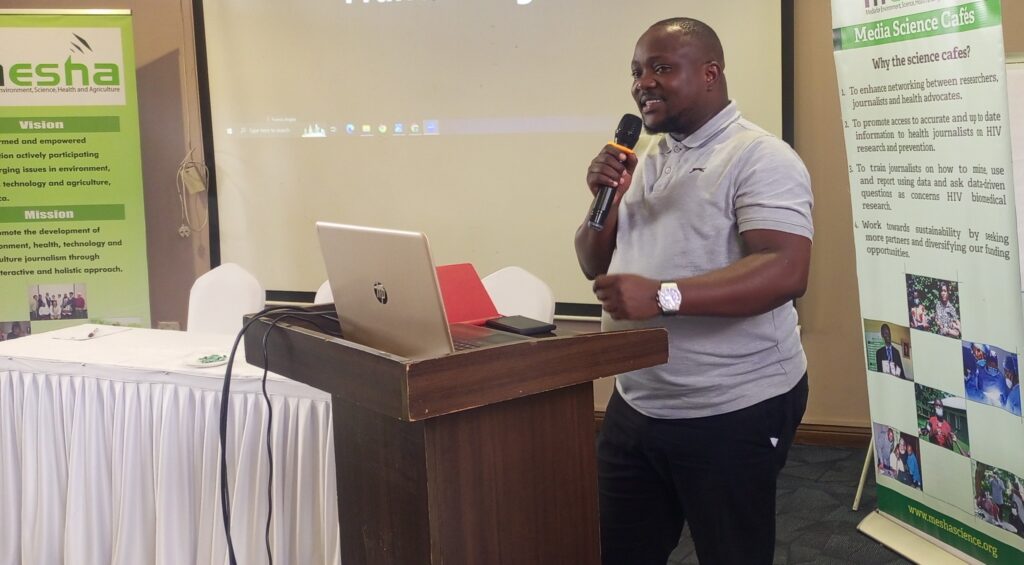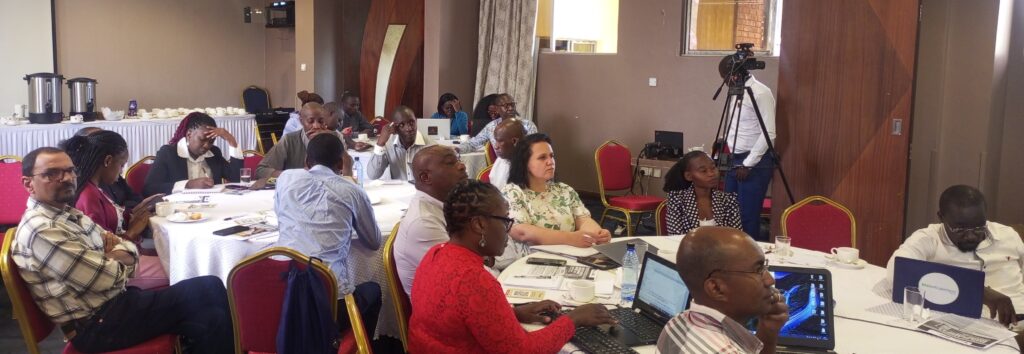The Kenya Medical Practitioners Pharmacists and Dentists Union (KMPDU) is warning of an imminent failure of Universal Health Coverage (UHC).
The union claims that despite the government doing a lot ahead of the launch of the program, the government seems not to have learnt a lesson from its failures in the past two attempts to roll out the program.
In Kenya today, we have one doctor to 16, 000 Kenyans. This is against World Health Organization’s requirement of one doctor to 1, 000 people
KMPDU Deputy Secretary General Dr Dennis Miskellah
UHC one one-year pilot programme was first launched in December 2018 in Nyeri, Kisumu, Machakos and Isiolo Counties.
By 2020, the programme had enlisted more than 200 community health units, with 7,700 community health volunteers and over 700 health workers. Between 2018 and 2019, the project supported 3.2 million Kenyans to access critical healthcare services.
After what government considered as a success of the pilot project, then President Uhuru Kenyatta rolled out the program through a grant launch in Mombasa in February 2022.
However, the program seemed to have run into a hoodwink.
Ruto health reforms
President William Ruto government has since initiated a number of reforms in the health sector ahead of the third rollout of UHC.
Some of the reforms include the scrapping off of the National Health Insurance Fund (NHIF) to pave way for the Primary Healthcare Fund, Social Health Insurance Fund, and the Emergency, Chronic and Critical Illness Fund.
This is set to be enabled through The Primary Health Care Bill, 2023; The Digital Health Bill, 2023; The Facility Improvement Financing Bill, 2023; and The Social Health Insurance Bill, 2023.
Social Health Insurance Bill, 2023, which establishes the authority that shall replace NHIF has established the three funds to cater for preventive and promotive primary care services at the community, dispensary, and health centre levels.
A Social Health Insurance Fund shall cover services such as primary referrals, secondary and tertiary services; and A Chronic Illness and Emergency Fund provides for chronic illnesses including complications of diabetes, hypertension, cancer management, and emergency treatment.
Primary Health Care Bill 2023 establishes a framework for the delivery of access to and management of primary healthcare by establishing a framework for the 100,000 community health promoters.
President Ruto has since commissioned the promoters.
The Digital Health Bill 2023 provides a framework for digital health services, data governance, protection of personal health information, and service delivery through digital health interventions.
On the other hand, Facility Improvement Financing Bill 2023, aims to ring-fence money generated in health facilities, ensuring a predictable, regular, and steady source of funding for health facility operations in the counties.
President Ruto has also committed to transform the Kenya Medical Supplies Agency (KEMSA) to improve procurement and delivery of medical supplies.

Fears of imminent failure, again
But even with these steps, KMPDU believes that health workers who should be the drivers of UHC have been left out.
“The only thing that was left was the healthcare worker, the human resource for healthcare,” said the union’s Deputy Secretary General Dr Dennis Miskellah.
According to Dr Miskellah, the shortage of health workers remains one of the biggest reasons why UHC has not achieved its desired results.
“In Kenya today, we have one doctor to 16, 000 Kenyans. This is against World Health Organization’s requirement of one doctor to 1, 000 people,” he said.
He noted that non-communicable diseases like Cancer is the worst hit, with Kenya having one oncologist for 540, 000 Kenyans.
“And with such acute shortage, nobody is paying attention to the issues of healthcare workers. Surprisingly, Kenya is exporting nurses when we have shortage of nurses in the country,” said Miskellah.
MESHA Science Cafe
Dr Miskellah was addressing journalists during Media for Environment, Science, Health and Agriculture in Kenya (MESHA) Science Café held in Nairobi on October 13.
The Café covered HIV and Health; the triple threat, and Pandemic Preparedness in Africa.
MESHA is an association of journalists and communicators who are specialized in environmental, agriculture, health, technology and development reporting. The association has a membership of over 100 journalists.

The Media Science Cafes platforms which bring together journalists and health experts are where technical and complicated health issues are broken down into everyday language for better understanding of health issues.
Dr Miskellah challenged journalists to continue shining light on health issues in the country, so as to help stakeholders understand the situation.
He noted that poor management of the health sector could hamper the implementation of critical programs such as UHC.
“The issue of Kenya importing Cuban, Indian and Egyptian doctors when we have over 4, 000 qualified but unemployed doctors in the country is something that threatens the delivery of UHC,” said Miskellah.
He said the best way to deal with the issues around health workers is to create the Healthcare Workers Commission, akin to the Teachers Service Commission to manage the recruitment, transfer, promotion and emoluments of healthcare workers across the country.
“There is no reason why a Governor must insist that healthcare workers’ salaries must pass through their pockets,” he said.
He said this is a conduit for corruption, as cases have been reported of shortage of healthcare workers, stagnations, delayed salaries, unremitted statutory and non-statutory deductions.
He however noted that KMPDU is ready to engage the government so as to ensure success of UHC.
